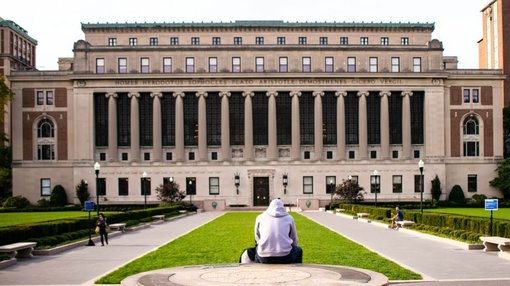Thousands of Debt Forgiveness Applications “Carelessly” Declined Under US Former Education Secretary Administration
United States North America Higher Education News by Erudera News Mar 22, 2021

The Education Department of the United States has revealed that during Betsy DeVos, Former Education Secretary’s administration, 130,000 claims for loan forgiveness have been denied through a system that required workers to review hundreds of pages of applications in less than 12 minutes, Erudera.com reports.
Workers that were fast qualified eligible for bonuses, and those who couldn’t keep up, could get fired. Agency employees rejected claims under the excuse that not enough written evidence has been provided, which evidence debtors were never required to submit.
During DeVos’ administration, out of 1,400 schools, only three claims were approved, the agency lead Colleen Nevin confirms. Approvals were based on criteria compiled by the Education forerunners.
The claims by students were received under court guidelines provided by lawyers in the class-action case, including more than 200,000 people who wanted to be a part of the relief program, known as borrower defense to repayment.
While most of these claims were still unsolved by the time President Donald Trump started his administration, in a lawsuit filed in 2019 in San Francisco, it was asked from the department to speed up the process and make decisions.
In the following seven months since the 2019 lawsuit, the department declined 91,000 applications that, according to the borrower’s lawyers, do not explain their decisions.
On Thursday, the new Education Secretary, Miguel Cardona, returned the policy of granting partial relief, ordering the department to forgive $1 billion owed by 72,000 students.
The students’ claims were set on grounds based on the previous administration run by President Obama.
“This is a significant step by the department in addressing borrower defense claims and underlying regulations. We will be pursuing actions, including re-regulation, in the future,” a spokeswoman for the Education Department, Kelly Leon, said.
After the borrower’s lawyers complained, Judge William Alsup rejected the settlement in October. He criticized the agency for “issuing perfunctory denial notices utterly devoid of meaningful explanation at a blistering pace.”
Judge Alsup also required the education department to turn over their records for the time being.
However, Judge Alsups’ action brought no benefit for Theresa Sweet, a lead accuser in the class-action lawsuit who applied and was rejected for the forgiveness program after waiting for four years.
She has graduated from the Brooks Institute of Photography under the suggestions of career advisors that this job was in demand. In reality, she was offered “nothing more than roundups of Craigslist postings for unpaid internships and gig work,” she claimed.
“I’ve lost track of the number of people who have reached out to me and told me they were considering suicide because their debt had so much negative impact on their lives,” Theresa Sweet confessed.
Eileen Connor, the director of the Harvard Law School’s Project, who represents the borrowers in the class-action case, said applicants would have no hope of winning until the department changes its approach and gives applications the time and commitment they deserve.
“There was this whole infrastructure set up to process claims without really contending with them,” director Connor said.
Although this is an effort to improve the education system in the US, recently, the country has lost about three million students due to financial COVID-19 circumstances, who mostly came from marginalized groups.
Recent Articles
France
May 03, 2024
United States
May 02, 2024
United States
Apr 30, 2024
Bulgaria
Apr 30, 2024
Related News

Editor’s note: Christina Winston, a full-time public servant in the state of Arizona, shares her student loan story as part of Erudera’s “Degrees of Debt” series. The series delve into how student loan borrowers ended up in debt, efforts to overcome the struggle, triumphs, and more.
United States
Apr 30, 2024

